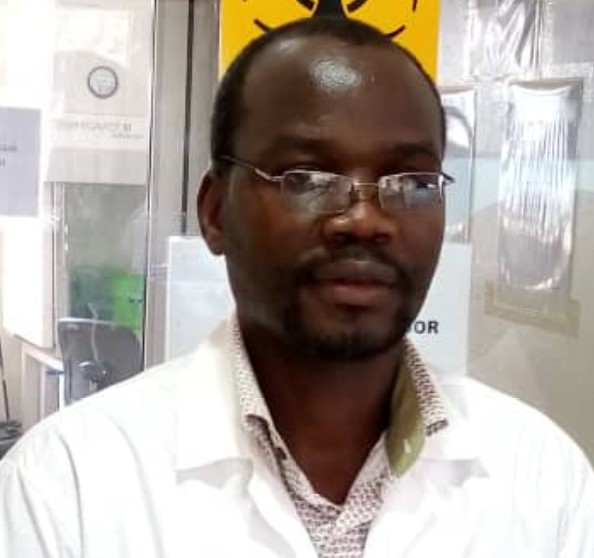
Professor
Novel Chegou
Current Organisation
Stellenbosch University
Current Job Title
Professor
Biography
Publications
Project Title
Evaluation of new biomarker-based approaches for improving the diagnosis of childhood tuberculous meningitis (TBMBIOMARKERS)
EDCTP Project
TMA2018SF-2470
EDCTP Program
EDCTP2
EDCTP Project Call
Senior Fellowship (SF)
Host Organisation
| Department | Institution | Country |
|---|---|---|
| Department of Biomedical Sciences | Stellenbosch University | ZA |
Project Objectives
The main objective is to validate previously identified host and CSF biomarkers and to develop a biosensor-based POC test for the diagnosis of TBM, based on these biomarkers.
Study Design
Clinical Trial
Project Summary
Tuberculous meningitis (TBM) is the most severe form of tuberculosis and affects mostly children and HIV infected adults. It currently takes up to six visits to health care facilities before TBM is diagnosed in children. Up to 50% of people that are diagnosed with this dreadful form of tuberculosis die or suffer from neurological problems if successfully diagnosed and put on treatment. It is estimated that about 20% of children who are diagnosed with the disease die. The issues that this form of tuberculosis causes are mainly because of diagnostic delay. It is currently challenging to diagnose the disease and diagnosis is often only made upon admission to a tertiary hospital. There is an urgent need for new tests that may enable the easier and earlier diagnosis of the disease. In previous work that informed the current project, we identified proteins that are detectable in cerebrospinal fluid and blood, which showed promise in the diagnosis of TBM in children. In the current project, we sought to validate these proteins in other children that are recruited after clinical suspicion of having meningitis and to develop a simple test that may be used for the rapid diagnosis of the disease, especially at the point of care, e.g. at the bedside. In the current study, we validated the accuracies of these proteins that are detectable in cerebrospinal fluid and blood samples and showed that these proteins, especially those that are present in cerebrospinal fluid continue to be useful when incorporated in to a test format that can be implemented at district and tertiary hospitals, called ‘ELISA’. Our ELISA data indicated that with just two proteins, we may be able to diagnose TBM in children with very high accuracy. Three engineering students are currently developing different types of prototype tests that will make use of the validated proteins. Whilst the engineering students continue developing the prototype tests that they are working on, the project team will be partnering with a Cape Town, South Africa-based company that has expertise in point-of-care test development, and which has developed several tests that are in use at the point of care for the diagnosis of many diseases, in the development of one version of the TBM test, that this project aims to develop. The additional support that this industrial partner requires has been made possible through additional funding from the South African Medical Research Council. A plan of the project was to recruit new study participants and collect specimens from these participants for validation of the biomarkers that are being investigated in the project, do further biomarker discovery e.g. through student projects, test new tools that may be available for diagnosing TBM and for biobanking for future validation studies. Recruitment of study participants for the project was delayed by the covid-19 lockdown restrictions but after commencement of recruitment in month 13 of this 60 month project, the project team has so far recruited 80% of the targeted number of study participants. Besides providing material for training of students and postdoctoral fellows that are supervised by the PI and the other key project partners, the study is also providing specimens for use by students and postdocs that work in other groups (other specialty areas) at Stellenbosch University. The project has so far supported 14 postgraduate students or postdoctoral fellows. Of these, the EDCTP Senior Fellow was the main supervisor of two PhD, and one BSc. Honours students that have successfully graduated. One of the engineering students working on the project has passed his examinations and is in line for graduation early in year 5 of the project, whereas, other students are expected to graduate later in that physical year (2024). Besides the students being trained, other major successes of the project so far include the granting of a patent application on the use of the biomarkers that were validated in the project in South Africa and India, with national phase patent applications currently under review in other territories. We have also submitted a new Provisional Patent Application based on new data that were generated directly from Work Package 1 of the project; and have so far published three peer reviewed papers in Open Access journals. Findings from the study have so far been disseminated at several local (based in South Africa) and international conferences, including the EDCTP Forum, with more outputs expected in year 5 and beyond. In summary, despite initial delays at the start of the project as a result of Covid-19 lockdown restrictions during which non-covid related research activities were banned, the project team has been making excellent progress, and we are hitting all our major milestones. We hope to have trained a considerable number of junior African researchers through the project and to ultimately develop a test that may assist in the rapid diagnosis of TBM in children at the conclusion of the study.


